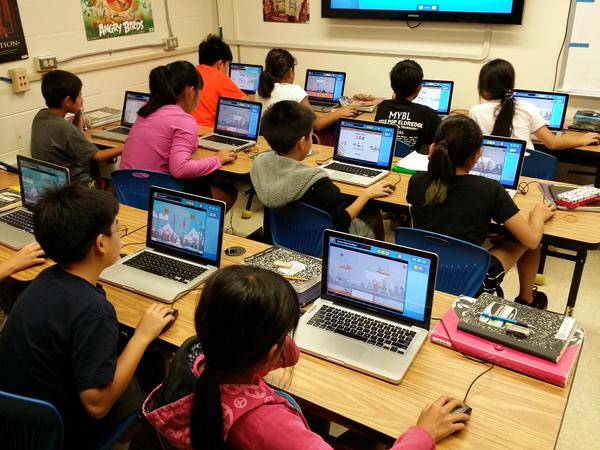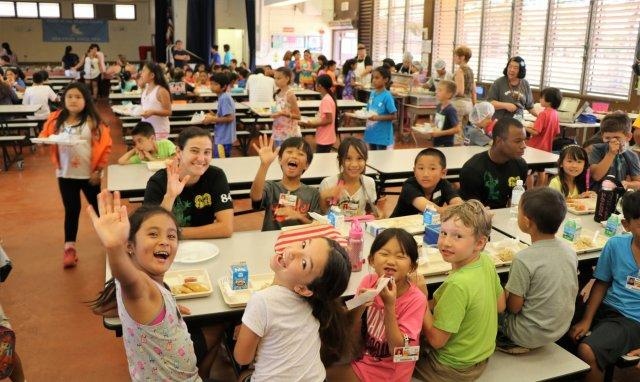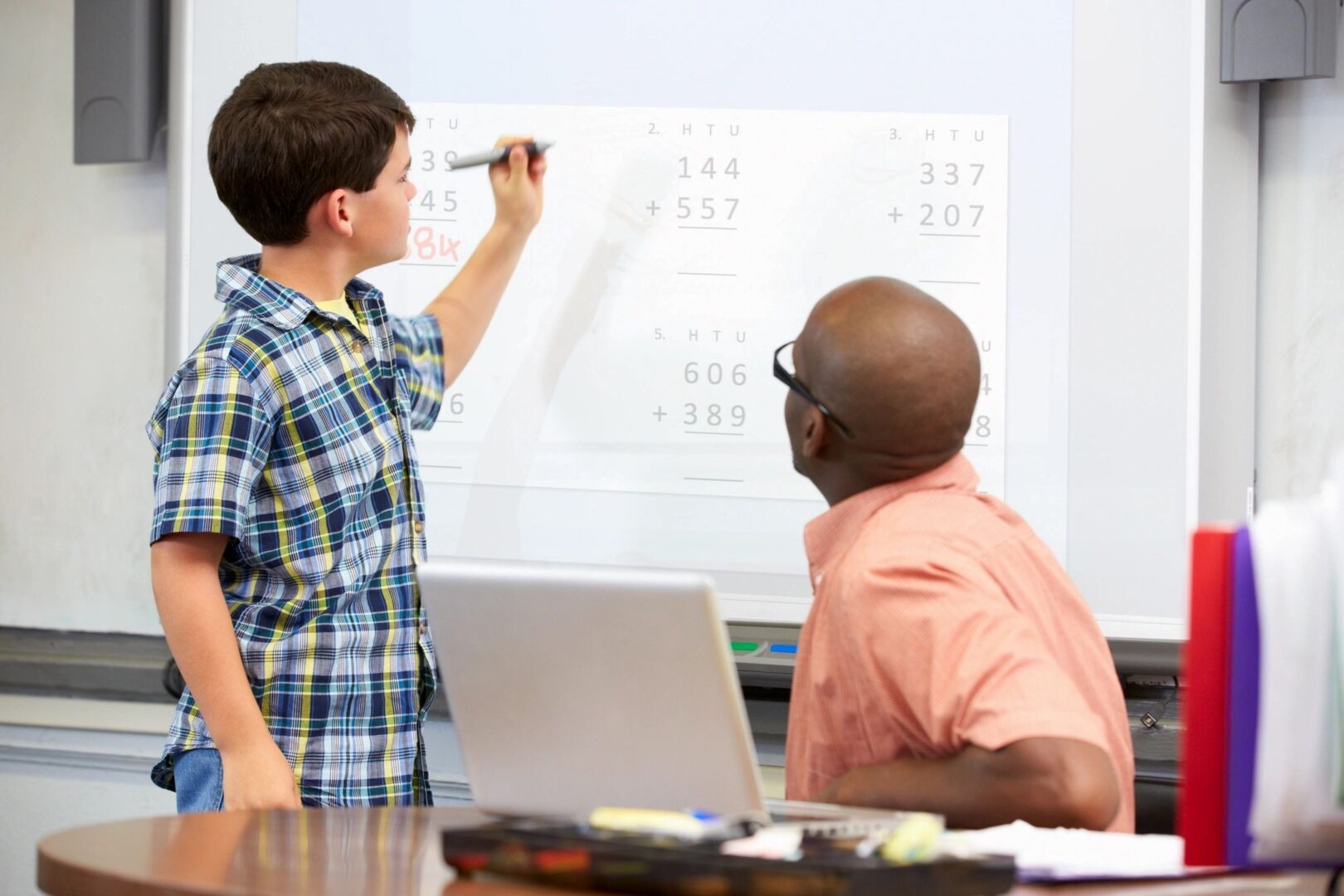HIDOE School Improvement Services
Hawaii Educational Resource Experts (H.E.R.E.) is proud to announce that our HIDOE Approved Services Provider Status has now been expanded to include School Improvement Services.
This expansion allows us to offer our support services and resources to address HIDOE’s five priority areas for School Improvement Services:
- Needs Assessment and Planning.
- Training in Leadership.
- Training in Coaching and Support for Complex Area Personnel, Charter Commission Personnel, School Level Coaches, and Teachers.
- Training in Specialized Areas. Particularly: a) Students in Poverty, b) English Language Learners, and c) Special Education students.
- Developing an effective Response to Intervention (RTI) A (Academic) and B (Social and Emotional Learning) system or Multi-Tiered System of Supports (MTSS).
1. Needs Assessment And Planning
School or complex-area leaders can partner with us to provide a comprehensive, validated school assessment to identify strengths and opportunities for growth. Our process creates a school-wide action plan for improving their academic and instructional program to ensure measurable academic achievement for all students.
We provide each school with personalized instruction on how to complete a comprehensive self-assessment using the Blue Ribbon Schools of Excellence self-assessment instrument. This is followed by a site visit from our team that validates the school’s self-assessment. The results of the self-assessment and site visit are analyzed by the school’s leadership and our team to develop an individualized action plan to meet the specific needs of the school. The school is assessed in nine performance areas indicative of high-performing schools.
The nine areas include:
- Student Focus and Support
- School Organization and Culture
- Challenging Standards and Curriculum
- Active Teaching and Learning
- Technology and Integration
- Professional Community
- Leadership and Education Vitality
- School, Family, and Community Partnerships
- Indicators of Success
The process begins with identifying a 2–3-week period to survey the five stakeholder groups in the school community. The stakeholder groups include Administrators, Teachers, Support Staff, Students, and Parent/Community Members. Continuous improvement in the highest performing school districts involves all stakeholders guiding the direction of the school.
Following the survey period, our team of national award-winning educators conducts a two-day onsite visit. At the conclusion of the visit, the school leadership has a clear understanding of the needed evidence to move through their action plan. The site visitor is available to answer questions and coach the school team in virtual sessions following the visit. These sessions will focus on the evidence needed to advance through the action plan.




2. Training in Leadership
Our unique and highly successful leadership training is conducted by an NASSP National Principal of the Year (Ted Talk Link) who has led school transformation at all grade levels and has extensive secondary school experience. Notably, our executive coaching model has been successful in supporting principals and administrative teams to improve student learning in low-performing, high-poverty schools. It is designed to help school and complex area administrators lead change to improve instruction and student learning.
Due to the personalized nature of our leadership coaching, this service will only be offered to a limited number of schools (up to four schools in the same complex area, or two schools in separate complex areas). Schools and Complex Areas contracting our Training in Leadership services will be prioritized by the date listed on their submitted purchase order worksheet.
Our leadership coaching support services are designed to partner and work closely with school administrators and leadership teams to build capacity, always with school improvement in mind. We assist school administrators to build and implement systems to support continuous improvement. Our leadership coaching, professional development, and support services will focus on:
- Using data (longitudinal, summative, formative, anecdotal, vertical, and horizontal)
- Managing Time (student day, master schedule, instructional time, and administrative time)
- Restorative Practices (Social/Emotional and Behavioral Support)
- Standards and Curriculum from a leadership lens
- Supporting high yield instructional practices
Our process begins with an assessment, data review, and two-day onsite training prior to the start of the school year and continues throughout the year with monthly coaching sessions targeting systems development for school improvement through a targeted Academic Plan.
3. Training in Coaching and Support for Complex Area Personnel, Charter Commission Personnel, School Level Coaches, and Teachers
We offer the flexibility of two approaches to personalized and highly effective coaching support services. The first is conducted by an NASSP National Principal of the Year (Ted Talk link) and the second is conducted by our team of expert educators. Both have led school transformation at all grade levels and have extensive experience in primary and secondary schools.
We know that it is important to maintain the community culture of the school while creating an improvement process that focuses on high-yield instructional practices. It is this approach that leads to improved student achievement based on the current data and the CCSS. Utilizing the expertise at the school, in collaboration with local leadership, equity and excellence will be the lens to focus on the innovation needed to help each individual school succeed.
Please note that due to the personalized nature of our coaching support, these services will only be offered to a limited number of schools for the 2022-23 school year.
I. H.E.R.E's first approach to address HIDOE School Improvement Priority #3, led by an NASSP Principal of the Year:
- Participants will be trained in Student-Centered Coaching
- Administrators will be trained in utilizing systems to gather data and provide strengths-based feedback.
- Coaching protocols will be used to develop strong instructional systems.
- Professional Development will focus on utilizing a proven framework to ensure a focus on CCSS and high-yield instructional strategies. A standards-based instructional protocol will be introduced to ensure standards are the focus of instruction. "The Fundamental 5 Revisited" will be utilized as the primary system to support instruction. Assessment management systems will be used to track standards mastery.
- High-yield instructional strategies will be reinforced and supported with fidelity, incorporating an evidence-based instructional system for all leaders, coaches, and instructional staff.
- Participants will learn how to use standards-based formative and summative assessments to track standards mastery. Participants will be coached on providing effective feedback to students, identifying students for intervention, and using data to inform instructional practices.
II. H.E.R.E.'s second approach to coaching support services is intended for school leadership and focuses on creating strategic plans to support equitable instruction in Literacy, Mathematics, and Social and Emotional Learning. Our school specialists will collaborate with school leadership and assist in selecting content to align with the needs of this school.
We have designed three levels of support to meet the differentiated needs of Hawaii schools. The level 1 partnership is a thought partnership with the leadership team and would include reviewing current practices and creating a strategic plan through co-learning, and coaching. For levels 2 and 3, leadership and educators (instructional coaches, teachers, etc.) are also included.
Each level 2 and 3 partnership begins with a strategic plan and then provides professional learning in brain science. Building on this foundational understanding, we highlight the high-leverage strategies that will be most impactful for all students. Level 3 partnerships include virtual office hours to support teachers and instructional coaches.
Some examples of workshops focuses are:
- SEL Topics - Science of Gratitude, Educator Wellbeing, SEL in the Classroom, Emotions Coaching, Reflecting on Current Practices
- Literacy Topics - How the Brain Learns to Read, Foundational Literacy, Literacy Across the Curriculum, Equitable Access to Curriculum for Struggling Learners
- Math Topics - Science of Mathematics, Mindset and its Impact on Mathematics, Mathematical Practices, Mathematical Discussions, Conceptual vs Abstract Mathematics
4. Training in Specialized Areas and developing an effective Response to Intervention (RTI) Social and Emotional Learning system or Multi-Tiered System of Supports (MTSS).
Our support services are aligned with the six value strengths of HA-BREATH: Belongingness (B), Responsibility (R), Excellence (E), Aloha (A), Total Well-Being (T), and Hawaii (H). Our expert team provides service and learning opportunities that will allow faculty and staff to demonstrate and model Na Hopena A’o - HA. The specific focus of this service and professional development will be on developing the social and emotional learning (SEL) of students.
To help your school address HIDOE Priority 4, Hawaii Educational Resource Experts offers the following support services package:
- A pre-visitation analysis of the school climate via an online survey (faculty, staff, administration, parents, students);
- A follow-up pre-visitation consultation on results and proposed support plan (virtual);
- Initial in-school site visit and evaluation;
- In-person professional development (see below) for the faculty, staff, and parents which can include the following workshops:
- Leadership for cultivating an emotionally healthy school;
- Cultivating emotional intelligence: the five habits of emotion coaching;
- Use of social-emotional learning materials in the classroom;
- Use of social-emotional learning as part of a multi-tiered intervention process; and,
- Cultivating emotional intelligence: what your child needs (for parents)
- Program Support Materials/Curriculum;
- 60-minute virtual monthly check-ins with administration;
- Mid-year school climate analysis;
- End of school year climate survey via an online survey ( faculty, staff, administration, parents, students); and,
- End of school year summary report.
Professional Development and Support:
The focus of our professional development workshops will be on social-emotional learning. Specifically, workshops will investigate the role of administrators, teachers, school staff, and parents in cultivating student emotional intelligence. A key element of our professional development is its focus on the relationship between growing student emotional intelligence as a means of strengthening their total well-being (T: Ua ola loko I ke aloha).
Our multiple offerings of professional development ensure that all faculty, staff, and interested parents in the school will be trained (H: O Hawai’I ku’u ‘aina kilohana).
To accommodate the needs of individual schools, our full day professional development workshops are flexible and are offered in the following formats:
- Full school day (6 hours). This is our most extensive training and is highly effective for smaller staff and/or focused training for a specified group of educators (e.g., counselors, teachers, etc.).
- Half-day training. This consists of a three-hour session, one in the morning for the first team of educators and one in the afternoon for a second team). This format accommodates larger schools so that the staff can be divided into two groups.
- One three-hour session coupled with walkthrough observations with school leadership, evaluation, and/or question and answer time, totaling another 3 hours.
Program Support Materials: H.E.R.E. will provide SEL materials during our professional development workshops. They will be used to provide social, emotional, and academic learning tools to your educators to support students in developing self-regulation and SEL skills through character exploration and development in a student-friendly manner (A: E ‘opu ali’i).
The pedagogy and tools provided are designed to build upon one another and are customizable based on district/school data and the specific needs of students. All tools are literacy-based and easily implemented in any classroom. Resources include flexible lesson plans and extra online resources that are appropriate for all instructional tiers – whole group, small group, or individual instruction (R: Ma ka hana ka ‘ike, ma ka ‘imi ka loa’a).
The focus of all program supports is to bring social-emotional competencies full circle from regulating one’s own emotions to positively contributing to others through civic engagement providing students with a comprehensive SEL experience for life-changing results (R: Ma ka hana ka ‘ike, ma ka ‘imi ka loa’a).
The learning outcomes for this initiative also include B: He pili wehena ‘ole and E: ‘A’ohe ‘ulu e loa’a i ka pokole o ka lou. They include:
- A self-awareness of emotions, character strengths, and corresponding behaviors;
- An awareness of others' emotions and character strengths based on corresponding behaviors;
- Development of simple strategies that increase one’s resilience, coping, and perseverance;
- Empowerment to apply understanding to self and form meaningful and healthy relationships;
- Application of social-emotional learning to positive academic practices, habits, and behaviors;
- Empowerment to use their learning to increase positive decision-making skills; and,
- Provision of supportive materials for whole family growth and research-supported curriculum, aligned with literacy standards that engage students and challenge academic growth.
